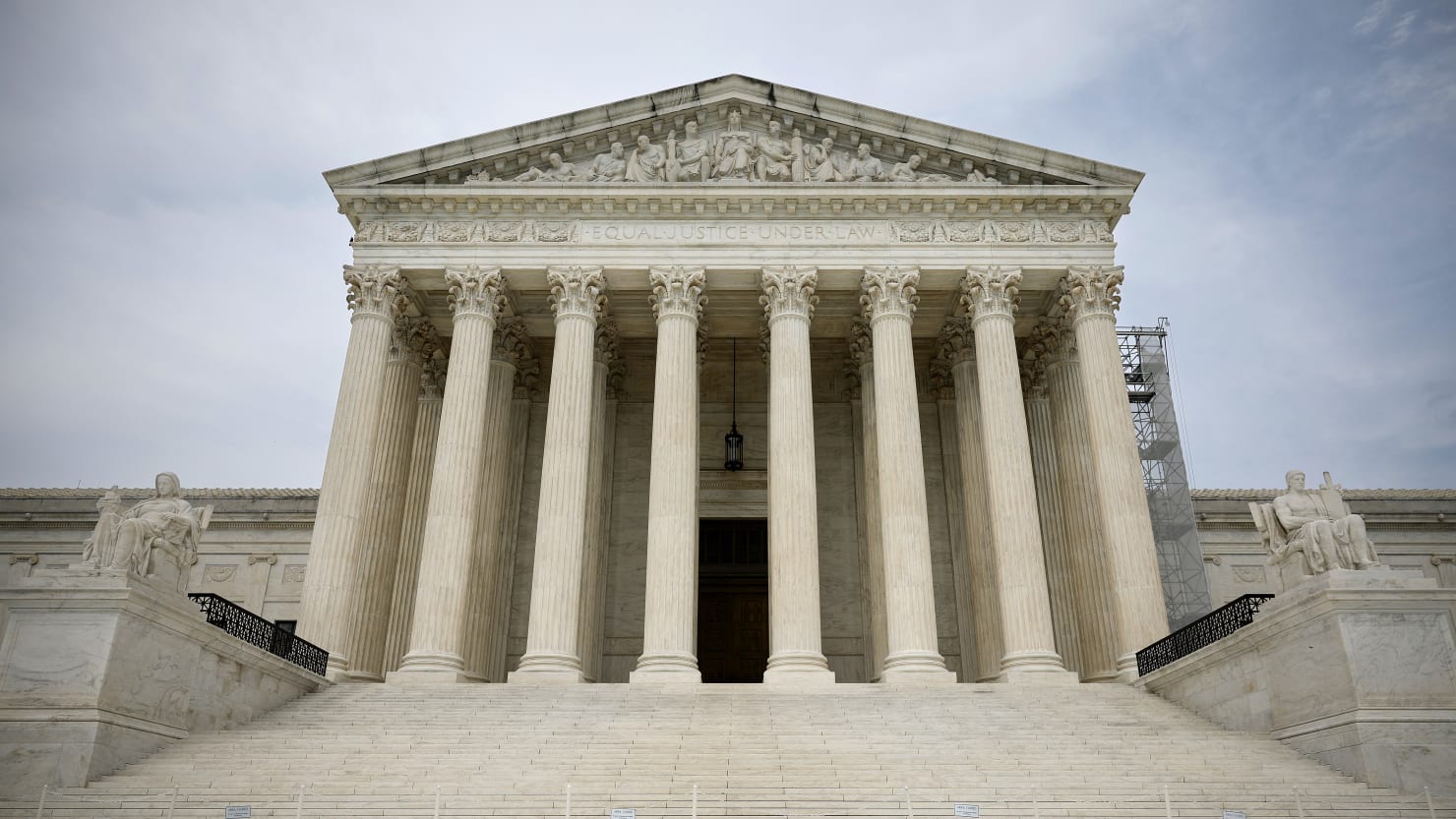The scandal-hit U.S. Supreme Court will jump back into the culture wars this session with rulings on guns and transgender care for minors – and the specter of a potentially explosive electoral crisis.
America’s highest court is under scrutiny as never before with its approval rate at a near-record low following leaks that raised concerning questions over the ethical behavior of some justices.
It goes to work on Monday with the very real possibility of being called in to resolve disputes about vote counts or ballot-rigging after the polarizing November 5 presidential election.
But the SCOTUS docket – reportedly slimmed down to make space for any ballot box debacles – still contains enough ammunition to re-ignite the simmering cultural conflicts that divide the country.
With its six-to-three conservative majority, the court granted Donald Trump partial immunity in a surprise decision last term and Democrats are bracing themselves for a continued move to the right as the nine justices begin a new nine-month term.
The court’s first ruling on Monday appeared to support those concerns, with the justices allowing a decision barring emergency abortions that violate the law to stand in Texas, which has one of the nation’s strictest pro-life laws. The Biden administration argued against a lower court’s ban on hospitals providing emergency terminations.
The justices did not offer their reasoning for their decision.
Top billing goes to the Biden administration’s challenge to a ban on transgender hormone therapy care for minors in Tennessee that took effect in 2023. The ban prohibits hormone and puberty blocker treatments for children with gender dysphoria if they are intended to “enable a minor to identify with, or live as, a purported identity inconsistent with the minor’s sex.”
More than 20 states have brought in laws restricting care for transgender youngsters so the knock-on effect of any ruling will be far-reaching. The justices will be asked to decide whether the Tennessee ban violates the 14th Amendment of the Constitution granting equal protection under the law.
First, the court will hear a claim that the Bureau of Alcohol, Tobacco, Firearms and Explosives (ATF) overstepped its authority with new laws treating guns made from at-home kits, known as “ghost guns”, in the same way as commercially sold weapons. About 20,000 untraceable kit guns bought over the Internet were reportedly found by police in 2021, the most recent date that statistics are available, which was ten times more than five years earlier, according to the BBC.
Gun rights groups won a lawsuit to block the new legislation, and the Justice Department appealed to bring the case in front of the Supreme Court on Tuesday.
Another potentially controversial case, brought by the adult entertainment industry, challenges a Texas law forcing websites to verify the age of users to ensure they are over 18.
The decisions will be made against a backdrop of suspicion over justices allegedly accepting perks from donors and aristocrats.
Samuel Alito reportedly enjoyed concert tickets paid for by a German princess and Clarence Thomas was said to have accepted free travel from a GOP benefactor.
In July, President Joe Biden called for 18-year time limits to be enforced for SCOTUS judges who currently have the jobs for life.











